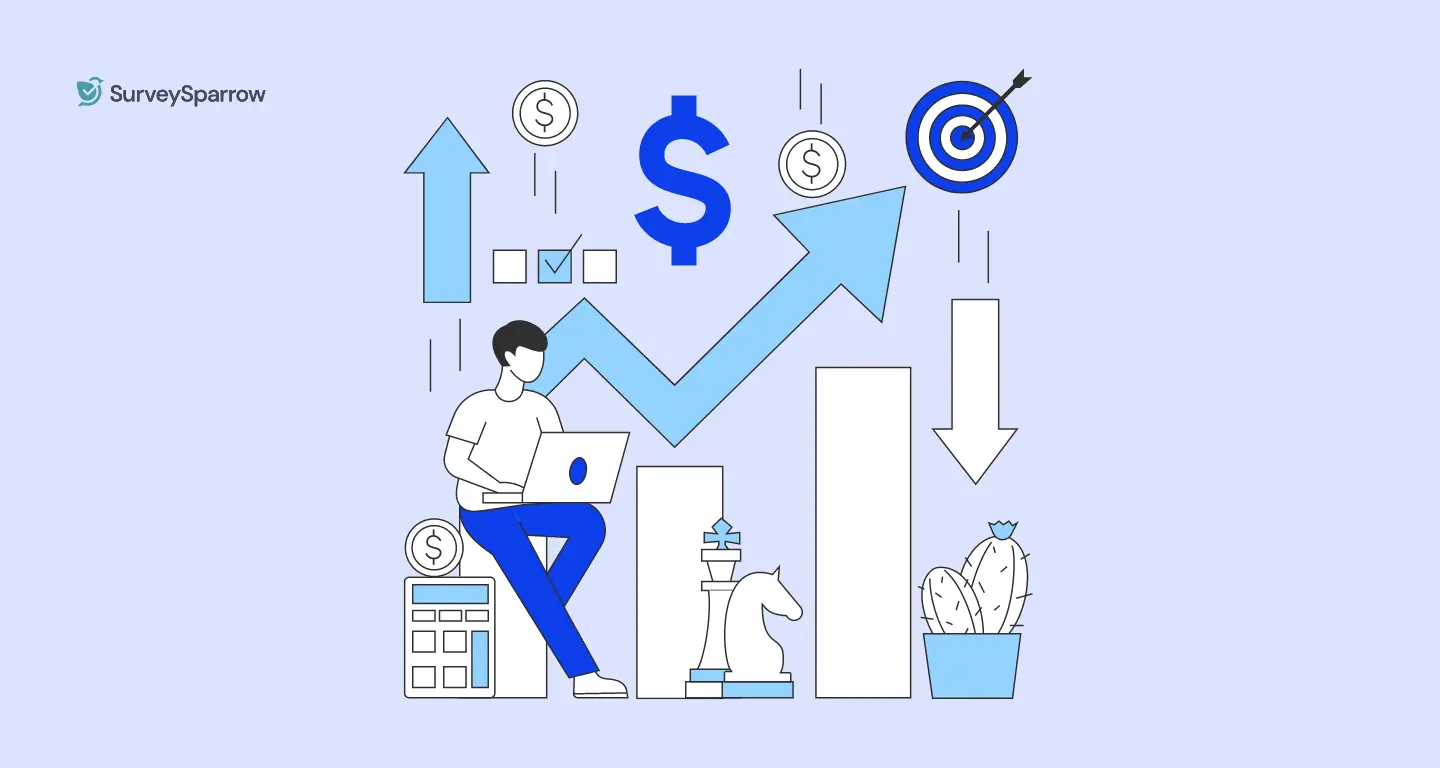In the popular HBO show Silicon Valley, Richard was an introverted coder who suddenly had to lead a team of 50 employees. On orientation day, he tried making an inspirational speech in front of the team, thinking it’s what great leaders do. He ended up vomiting and falling on the floor.
After a few such embarrassments, Richard thought he would just do what he knew best, which was to code. Seeing him dedicated to the work ended up inspiring his employees, and they respected Richard more for it.
What Richard was missing was an effective leadership assessment.
The most important leadership skill is to know yourself. Too often, leaders try to copy other leaders and create unhealthy work environments. The best leadership quality is not confidence or aggressiveness or any one personality trait, but how a leader adapts their own nature into their leadership style.
A good leadership assessment can help leaders know themselves better, and lead with less stress and more efficiency.
What is a Leadership Assessment?
A leadership assessment is a personality test tailored to understanding a person’s leadership style. It measures unique traits that affect how they direct and manage others under them.
Leadership assessments are conducted to better understand and improve how a person fits into a leadership role. They involve asking questions to the person being assessed. 360-degree-assessments also include responses from supervisors and employees working under them.
Why Conduct A Leadership assessment?
Businesses depend on leaders to stay afloat and thrive. A leadership assessment helps leaders assess their strengths and weaknesses. It gives insights on a leader’s personality at the workplace, and what leadership style will be best suited for them.
Get Honest Feedback
In typical workplaces, employees don’t often get the chance to give constructive feedback to their leaders. Leaders may be making some mistakes that are visible to everyone but themselves. An assessment that includes the feedback of employees and supervisors helps leaders get great feedback to work with.
Develop A Leadership Style
Unnatural leaders are not good leaders. A leadership assessment will give you insights that make you comfortable in your own skin. You can then develop a leadership style that comes easiest to you.
Find Positions You Thrive In
Businesses have known for a long time that employees need to be in positions where they can do their best work. If your current position is not suited to your leadership style, a good assessment can indicate that. Companies can then make accommodations to help their leaders thrive.
Adapt to Change
In 2020, nobody needs to be taught about the importance of adapting to change. By assessing your strengths and weaknesses, leadership assessments show you what to work on. A new situation at work might require a skill a leader is not suited for. Knowing this will give leaders the foresight to work on themselves and adapt to a changing world.
How To Conduct An Effective Leadership Assessment
Getting to know yourself can seem like an intimidating project. We imagine going to the hills in the hope of finding some answers. The good news is that you don’t need to go on a soul-searching trip to become a better leader.
General Personality Tests
There are two ways to conduct leadership assessments. The first kind of assessment is done through general personality tests that you can take today. You can use results from these personality tests to infer what leadership style suits you best. We will outline the best personality tests for leadership assessment.
Personality tests are limited to taking responses directly from the leader. They are also not tailored to leadership skills and qualities. While they are useful, personality tests can only go so far as in effective leadership assessments.
Leadership Assessment Surveys
To get the best results and useful insights, nothing is better than a leadership assessment survey tailored to your company culture and leadership needs. These surveys are built to assess the parts of your personality that are relevant to the workplace.
Leadership Assessment surveys also take responses from employees and supervisors. This allows for a well-rounded assessment. Well-designed leadership assessments lead to quality insights. They help leaders and their companies thrive.
Let’s start with some of the best personality tests that you or your employees can take today for insights into their leadership style.
Best Personality Tests for Leadership Assessment
There is no shortage of personality tests on the internet. However, only a few handpicked tests actually help you improve your leadership. Here are our picks for the most effective personality tests for leadership assessment.
Myers-Briggs Type Indicator (MBTI)
MBTI is the most widely used personality assessment tool for both personal and professional needs. The test measures four traits – extroversion/introversion, sensing/intuition, thinking/feeling, and judging/perceiving.
It can be powerful to understand these traits about yourself. You can derive useful insights that can help develop your natural leadership style.
DISC Profile
The DISC profile measures four traits – Dominance, Influence, Steadiness, and Conscientiousness. DISC gives you a detailed report of your personality traits relevant to the workplace.
DISC also suggests tips for working with different kinds of people. DISC profiles focused on the workplace can be helpful in leadership assessments.
How To Build a Leadership Assessment Questionnaire
Creating your own questionnaire lets you adapt the questions to your company and its leadership goals. The tricky part, though, is designing a survey that delivers useful insights for leadership development.
A badly designed survey can take up a lot of time and lead to useless data. For the best insights from your leadership assessment, follow these guidelines:
Set Clear Objectives
Are you conducting the leadership assessment to get a general overview? Or is there a specific leadership challenge you want to tackle? Knowing your objective clearly is crucial to conducting a productive leadership assessment.
When designing an assessment, you can either spread it wide or focus on a few things. Companies and leaders tackling challenges should conduct narrowly focused surveys.
A wide approach is best suited for regular assessments. They help companies identify new problems that come up with changing work environments.
Make Claims and Get Reactions
Asking questions like ‘Does your leader give clear instructions?’ or ‘Do you give clear instructions?’ makes people wander around for answers.
An actionable statement in your survey is much more likely to provoke an honest reaction. If the survey says, ‘My leader gives clear instructions,’ people will respond according to how they feel. That is what you want in a good leadership assessment.
Here are some examples of how to put forward a claim –
- My leader communicates clearly
- My leader takes my inputs into consideration
- My leader appreciates when I do good work
- My leader allows me to make my own decisions
The claims will vary based on what your company prioritizes in a leader. But to get good results, claims are always better than questions.
Different Surveys for Different Respondents
When it comes to leadership assessment, one survey will not get the job done. Great assessments involve feedback from multiple perspectives. Hence, the data you want from different respondents will be different.
Supervisors – Supervisors will tell us information based on how they have seen a leader adapt and respond to different situations. For them, a descriptive survey would be effective. It lets them express things they have noticed that may not be part of direct questions.
Leaders – This is the self-assessment, so the questions in the assessment should be focused on the leader’s personality, their inclinations. Direct questions about their preferences and personality are most effective here.
Employees – Employees working under the leader will give us the best impression of the leader’s behavior. Direct claims about the workplace behavior of the leader will be most important in the employee survey.
Don’t Stick to Absolutes
Our feelings towards those we work with are often more complicated than binary yes or no answers. Leadership Assessments that push the survey-taker into that choice miss out on more accurate data.
Whether it’s a claim or a question, allow for a spectrum of responses. This lets people give the most accurate responses. This goes a long way in getting better insights from your leadership assessment questionnaire.
One Point At A Time
To keep a survey short, it can be tempting to club questions together. ‘My leader communicates clearly and appreciates my work,’ is a perfectly normal thing to say. But when conducting a leadership assessment, it’s a bad strategy.
If a responder says ‘yes’ to a clubbed sentence, you don’t know which part of the sentence they are responding to. This leads to fuzzy and unreliable leadership assessments.
Resist the urge to club questions together. Break the leadership assessment down into shorter, sharper questions. Respondents will appreciate the clarity and ability to give accurate responses.
Conclusion
A leadership assessment is not a very expensive or lengthy process. But it’s often overlooked by companies looking to improve employee experiences and productivity. That is a mistake. Companies cannot afford to ignore the quality of their leadership, especially when improving it is as easy as conducting a leadership assessment.
If conducted properly, leadership assessments can deliver powerful results. It facilitates communication between employees and their leaders. It also reminds leaders to be conscious of their leadership style. Assessments enable them to keep improving and adapting to changes.
Good leaders inspire great work. Effective leadership assessments can elevate a company’s leadership and create a more efficient, happier workplace.







